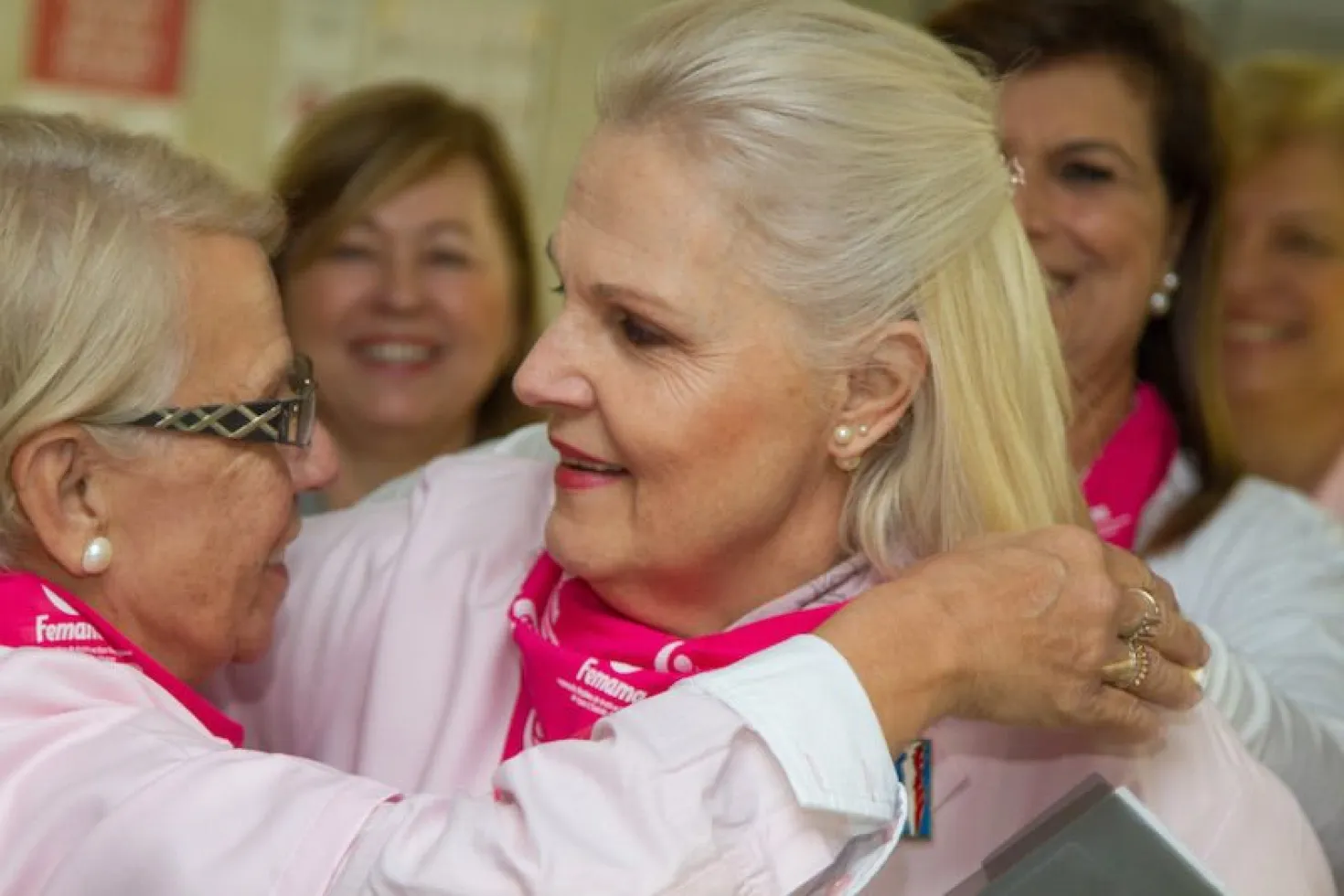Engaging Brazil’s parliamentarians to improve MBC treatment in the public health system
FEMAMA is a non-profit organisation working to reduce breast cancer mortality rates throughout Brazil and to influence public policies to defend patients’ rights. Its network extends to 17 states in Brazil, plus the federal district, through its 71 associated NGOs.

Context
Breast cancer is the most frequent type of cancer among Brazilian women, excluding cases of non-melanoma skin cancer. In 2010, according to the Federal Accounts Court, approximately one half of the cases diagnosed amongst users of Brazil’s public health system were already at an advanced stage.[1] It is possible to prolong an individual’s life without disease progression with modern drugs, while also ensuring a better quality of life for patients with metastatic breast cancer (MBC). However, drugs are not yet available in the public health system for women with metastatic breast cancer, which serves 75% of Brazil's population. The Brazilian Federation of Breast Health Support Philanthropic Institutions (FEMAMA) instigated national discussion forums across Brazil on the need for access to adequate treatment of MBC in the Brazilian public health system.
FEMAMA is a non-profit organisation working to reduce breast cancer mortality rates throughout Brazil and to influence public policies to defend patients’ rights. Its network extends to 17 states in Brazil, plus the federal district, through its 71 associated NGOs.
Project description

FEMAMA won a SPARC MBC Challenge grant in 2015 to advocate for access to MBC treatment in the Brazilian public health system. To do this, they held discussion forums for parliamentarians on breast cancer in five regions of Brazil, which were selected according to the prior political engagement undertaken by the institutions associated with FEMAMA. In these discussions, FEMAMA also provided technical information about MBC and urged deputies to promote the release of essential MBC treatments at their state level so that the federal government is influenced to make these treatments available for MBC patients across the country.
FEMAMA is partnering with Instituto Oncoguia, another SPARC grantee in Brazil, to support each other in specific actions and campaigns around breast cancer advocacy.
Impact
Since the beginning of the project, FEMAMA has held 13 debates with parliamentarians, of which five were specifically supported through the SPARC grant.
Important progress was achieved, with two MBC drugs, trastuzumab and pertuzumab, included free of charge for the treatment of metastatic breast cancer into the public health system since 2017. After this victory, FEMAMA is now advocating that these drugs are effectively distributed and can be accessed by patients.
FEMAMA has also contributed to the drafting of a law that establishes compulsory registration of cancer in Brazil for new cases of cancer diagnosed and treated in the public, private and supplementary healthcare systems. This is an important tool for measuring cancer incidence data and to ensure improved care for cancer patients in the country.
Finally, since in Brazil patients have 95% chance of curing breast cancer when diagnosed and treated early, a bill that regulates the maximum length between the diagnosis and the start of the treatment. This so called “30 Days Law” was passed in the Federal Senate in late 2019 and has been signed by Brazil’s president in October 2019.
FEMAMA continues to engage state legislative authorities and to issue complaints to the press and state representatives of the public prosecutor's office so that the rights of patients are upheld in Brazil.
More
- Organisation's website: FEMAMA
- Blog: “Changing the public policy of fighting cancer in Brazil”, by Maira Caleffi, President of FEMAMA
- UICC article: "SPARC grant awardees – Meet Ana Lucia from Brazil", SPARC Project Leader
- Article: “Amplifying the perspective on MBC” by FEMAMA
References
[1] Cecilio AP, Takakura ET, Jumes JJ, et al. Breast cancer in Brazil: epidemiology and treatment challenges. Breast Cancer (Dove Med Press). 2015;7:43–49. Published 2015 Jan 29. doi:10.2147/BCTT.S50361
(Information from the project description and context is compiled from the SPARC reports)
Last update
Tuesday 14 March 2023